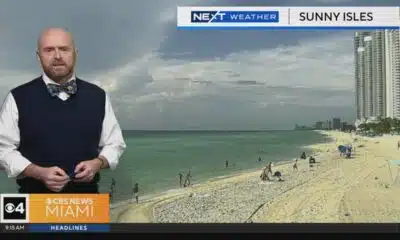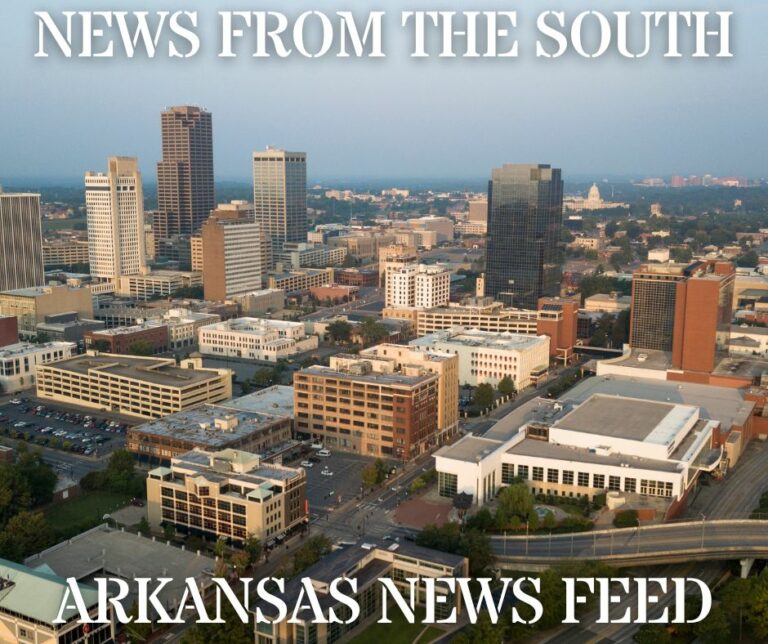News from the South - North Carolina News Feed
State Health Plan in debt, employee premiums to dramatically rise
The State Health Plan is deeply in debt. To get out of the red, the 750,000 employees who receive coverage will experience something many were hoping to avoid: the first significant premium increase in nearly a decade.
It’s part of the strategy from Brad Briner, North Carolina’s treasurer, to pay off a $507 million shortfall the State Health Plan has accrued due to dramatic increases in the cost of health coverage — a deficit which is projected to grow to $1.4 billion by 2027.
State employees will face a minimum $20 increase in monthly premiums for their health insurance starting in 2026. Those premiums could reach an additional $110 per month. Deductibles and co-pays will increase as well.
The premium hike will affect even the lowest-paid state employees at a time when many North Carolina agencies face staffing shortages and recruitment challenges.
It all comes after a potential problem was foreshadowed last year by former Treasurer Dale Folwell, who said the State Health Plan — which covers about 8% of North Carolina residents who have medical coverage — may be unable to stay afloat by fall 2026 due to the aforementioned rising costs in care. North Carolina ranks No. 1 in health care costs by state and has the most expensive health care in the nation, according to Forbes.
But Briner doesn’t intend to let the State Health Plan drown in debt.
Paying the price
Folwell’s solution was to have the General Assembly open its wallet.
However, Briner’s plan requires state employees to open theirs as well.
The base premium for state employees will rise from $25 to $45 monthly next year. Increases will reach $110 for the highest-paid employees. Deductibles will increase anywhere from $3,000 to $9,000. Co-pays will rise between $20 and $45 per visit.
All together, it will bring $100 million back into the plan, Briner said.
But he isn’t stopping there. He asked for another $100 million from the legislature, and lawmakers delivered in this year’s proposed Senate budget.

“The Senate gave us everything we hoped they would give us, and we are really, really appreciative that they found the money in a year that everybody knows is really tight,” Briner told Carolina Public Press. “Their number one priority is not the State Health Plan right now. It’s not the State Pension Plan. It is rebuilding Western North Carolina, and we certainly understand that.”
The $100 million could be a boon — provided the House approves the budget and it crosses Gov. Josh Stein’s desk in one piece.
Additionally, $25 million of it is earmarked to bring weight-loss drugs like Ozempic and Mounjaro back into the plan.
In 2023, as a cost-cutting measure, the plan stopped covering the blockbuster drugs. Now, those drugs will be covered once again for state employees who qualify.
“I tend to think about drugs — the useful ones — in one of two ways,” Briner explained. “Either they have a profound impact on a small population or they have a small impact on a profound population. It’s rare that you have a medicine that is both profound in impact and enormous in population, and (these drugs) are that.”
State Health Plan increase ‘significantly high’
But the premium increase is a disturbing development for state employees.
Low salaries are a problem across agencies. At the NC Forest Service, for example, there are 100 vacancies, due in part to a lack of competitive pay. Now, those who chose to work for the service will face higher costs for health insurance.
And it’s not just firefighters. Teachers, too, have been dealing with pay issues.
“We are against any increase to the premiums for public school employees because we know that this increase will take more money out of our educators’ paychecks in a state where our educators are very much underpaid,” said Tamika Walker Kelly, president of the North Carolina Association of Educators, which represents public school workers across the state. “We know that it could be one of the many things that continues to drive our educators out of a profession in a time where we are facing an educator shortage here in North Carolina.”
Recently, the North Carolina Public Service Workers Union held a statewide protest over the price hikes, which they characterized as “attacks on the State Health Plan.”
“As public workers,” union leader Charles Owens said in a statement, “we aren’t being taken care of by our lawmakers.”
While Briner frames the monthly increases as a necessary measure to save the health plan, Walker Kelly sees it as a financial burden on those who receive coverage.
“A $20 increase is significantly high, especially when we are talking about educators who have not seen a significant increase in their base pay from the state of North Carolina in quite some time,” she said. “Twenty dollars is whether or not I can put gas in my car to take myself to and from work.
“It may seem like a relatively low number on paper, but it provides significant challenges to the economic well-being of our educators throughout the state.”
This article first appeared on Carolina Public Press and is republished here under a Creative Commons Attribution-NoDerivatives 4.0 International License.
The post State Health Plan in debt, employee premiums to dramatically rise appeared first on carolinapublicpress.org
Note: The following A.I. based commentary is not part of the original article, reproduced above, but is offered in the hopes that it will promote greater media literacy and critical thinking, by making any potential bias more visible to the reader –Staff Editor.
Political Bias Rating: Center-Left
The content presents a critical view of premium increases impacting state employees, emphasizing the financial burden on low-paid workers like educators and public service employees. It highlights concerns from union leaders and employee representatives, which aligns with a center-left perspective focused on labor rights and social welfare. However, it also fairly presents the fiscal challenges and responses from state officials, reflecting a balanced approach without extreme partisanship. The article advocates for protecting workers’ economic well-being while acknowledging governmental budget constraints, typical of a center-left stance.
News from the South - North Carolina News Feed
Raleigh caps Independence Day with fireworks show outside Lenovo Center
SUMMARY: Raleigh’s Independence Day celebrations culminated with a large fireworks show outside the Lenovo Center, drawing thousands of families who enjoyed a safe, festive atmosphere with food and entertainment. Earlier, festivities began at the State Farmers Market, showcasing North Carolina’s local vendors and products. Attendees then gathered at the Lenovo Center to secure spots for the fireworks, with many expressing appreciation for the family-friendly environment. Traffic congestion followed the event, with police urging patience and safety. Nearby, Holly Springs hosted a patriotic bike parade, and Durham featured a fireworks display after the DBAT game, rounding out a day of regional Fourth of July festivities.
It was a festive Fourth of July in the Triangle, and the Lenovo Center closed things out with a bang.
News from the South - North Carolina News Feed
Red flags when you're buying or selling a used car
SUMMARY: Buying or selling a used car this summer requires caution due to prevalent scams. July is peak season for used car transactions, attracting scammers targeting both buyers and sellers. John Matarice highlights how easy it is to fall for fake check scams, like Matt Nef, who tried selling a 1948 Packard and received a counterfeit check exceeding his asking price, with requests to send money to a shipping company. Similarly, buyer Dejon Wallace nearly lost $1,200 on a fake check from a seller on Facebook Marketplace. To avoid fraud, always meet in person, never cash checks and send money back, and avoid wiring funds to strangers.
July is typically peak season for buying and selling used cars. Anyone in the market for one or trying to sell their own should be wary of scams.
News from the South - North Carolina News Feed
What to expect traveling for July 4: roads, weather, air travel
SUMMARY: Many Americans are traveling extensively this July 4th, with airports and roads packed for the holiday weekend. However, severe weather is causing significant disruptions. In Texas, heavy rainfall triggered flash floods near Kerrville, leading to evacuations and multiple deaths. The Northeast also faces storms, resulting in over 100,000 power outages across New York, Pennsylvania, New Jersey, and Massachusetts. New Jersey reported at least three storm-related deaths. Despite weather challenges, air travel is expected to hit a record with nearly 6 million domestic passengers, while over 61 million are predicted to travel by car. Gas prices are at their lowest July 4th average since 2021.
While the airports and roads have been packed, severe weather has also been causing major problems. ABC’s Olivia Rubin has more.
More:
Download: https://abc11.com/apps/
Like us on Facebook: https://www.facebook.com/ABC11/
Instagram: https://www.instagram.com/abc11_wtvd/
Threads: https://www.threads.net/@abc11_wtvd
TIKTOK: https://www.tiktok.com/@abc11_eyewitnessnews
-
News from the South - Louisiana News Feed7 days ago
Water company hiked sewage rates in Lafayette to state’s highest
-
The Center Square6 days ago
U.S. Senate prepares for passage of One Big Beautiful Bill Act | National
-
Mississippi Today5 days ago
Feds unfreeze $137 million in Mississippi education money
-
News from the South - Tennessee News Feed7 days ago
“Choose how you love:” Nashville Pride 2025
-
News from the South - Arkansas News Feed7 days ago
Congress unlikely to enact ‘absolutely devastating’ Trump proposal to slash Pell Grants
-
News from the South - Arkansas News Feed6 days ago
Thousands celebrate pride, progress at the 2025 NWA Pride Parade
-
Local News6 days ago
Mississippi airports working to complete projects
-
News from the South - Arkansas News Feed6 days ago
Beyoncé handles car tilting in air during Houston show










































